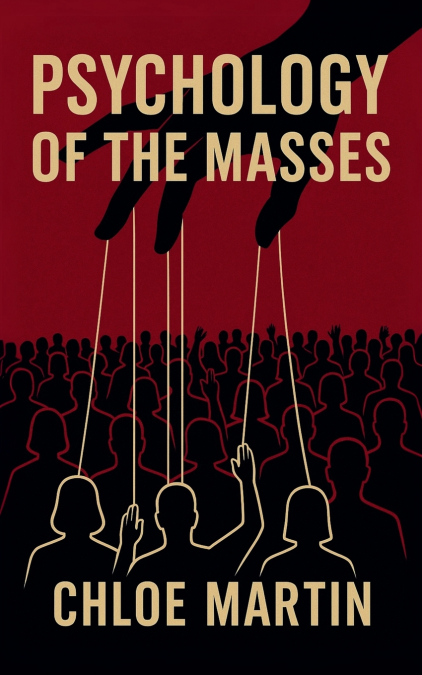
Chloe Martin
Have you ever felt like you think freely, but something deep down tells you that your ideas, your decisions, and even your fears don’t come entirely from you? Have you noticed how public opinion seems to move like a giant wave that sweeps everyone away, even those who believe they are safely on the shore? This book doesn’t seek to give you comfortable answers or confirm what you already know. On the contrary, it invites you to question everything you’ve taken for granted about human behavior in society, about power, manipulation, education, and freedom. It’s a read for those who feel that something doesn’t fit, that the modern world seems designed to prevent us from thinking for ourselves, and that it’s increasingly difficult to distinguish the truth from so much noise. Through deeply thoughtful chapters, written in clear, direct, and accessible language, this book explores the psychological mechanisms that shape collective thinking. Not from a cold or distant theoretical perspective, but from a human, relatable, and sometimes uncomfortable perspective. It speaks of fear as a tool of control, of the cult of the savior leader, of how public opinion is manufactured, of the influence of the media, of education as a form of domestication, and of religion as an ideological machine at the service of power. It doesn’t limit itself to criticism, but also proposes paths toward a more conscious transformation, toward a society that thinks, questions, and isn’t content with repeating what others have dictated. It is addressed to anyone who has felt uncomfortable in crowds, who has felt that the world demands they fit in without question, who has ever wondered if they are truly awake or just operating under programming. It is an honest invitation to break out of that silent obedience, to stop being part of the herd, and to begin living more truthfully, even if that means going through the uncertainty and discomfort that comes with thinking for oneself. Each page was written with the intention of disturbing, awakening, and, above all, opening an internal dialogue. This book won’t tell you what to think, but it will insist that you think. It will remind you that, although we are part of a mass, we are still individuals capable of choice, of resistance, of imagination, and of building something different. If you’re willing to look beyond the noise, to ask yourself difficult questions, and to break with the established, then this book was written with you in mind.